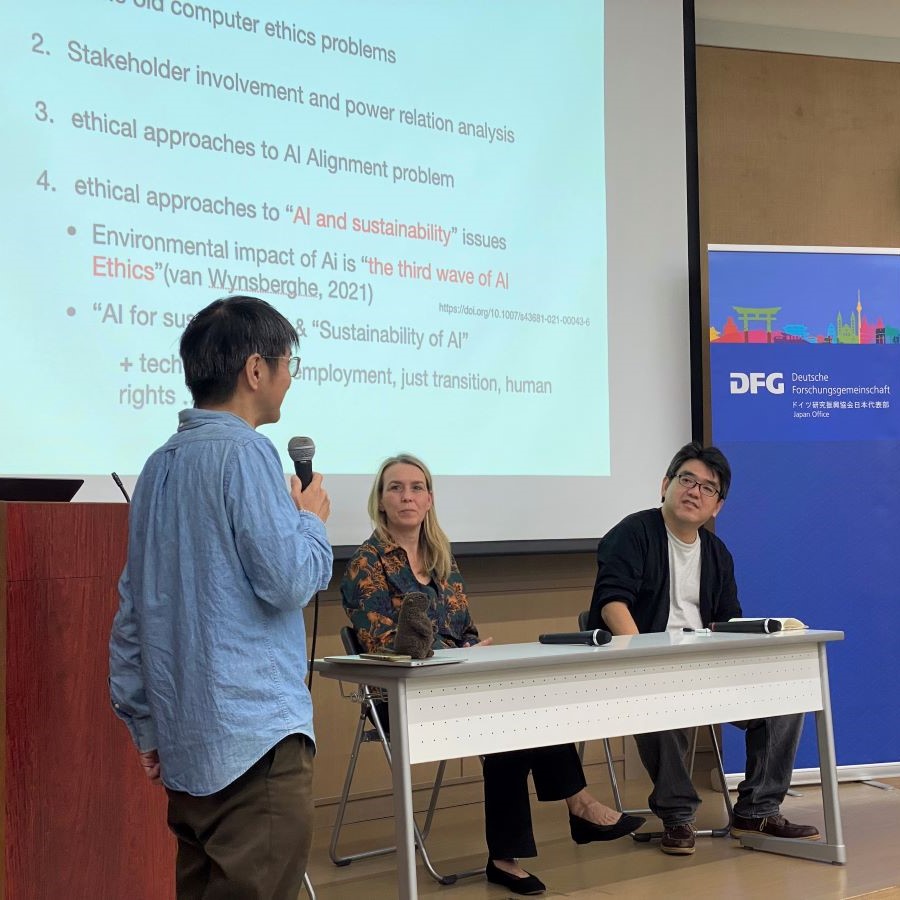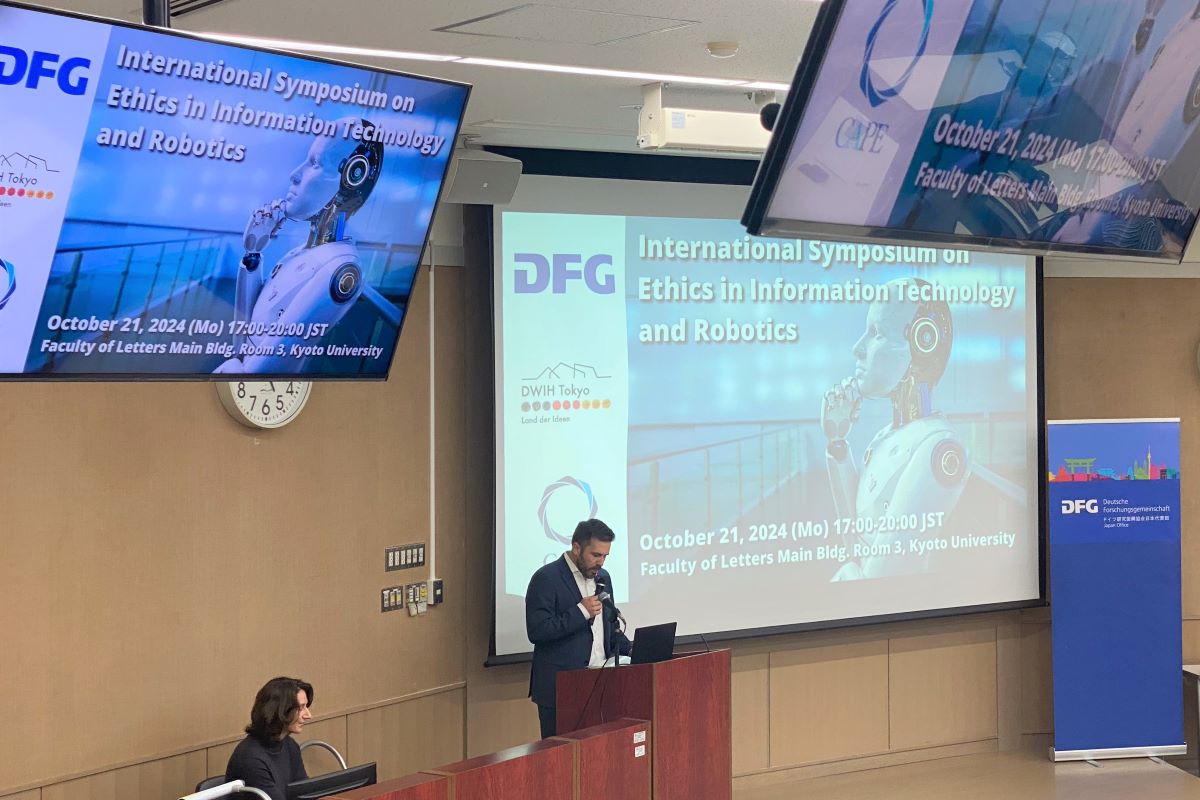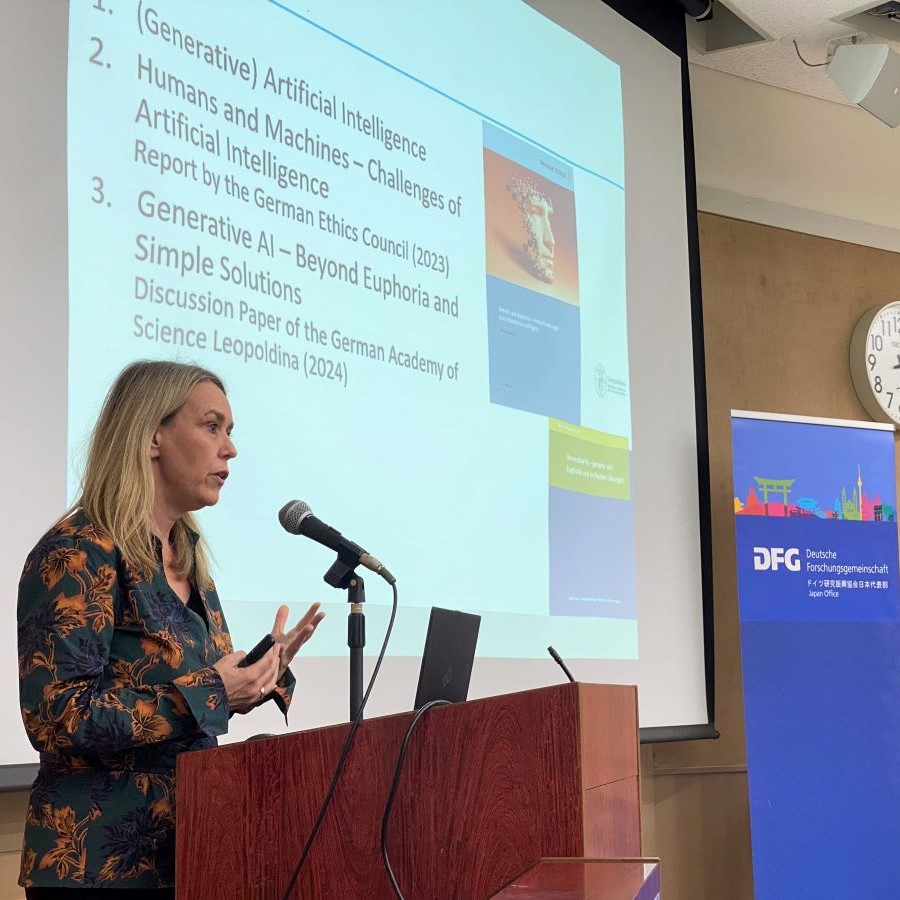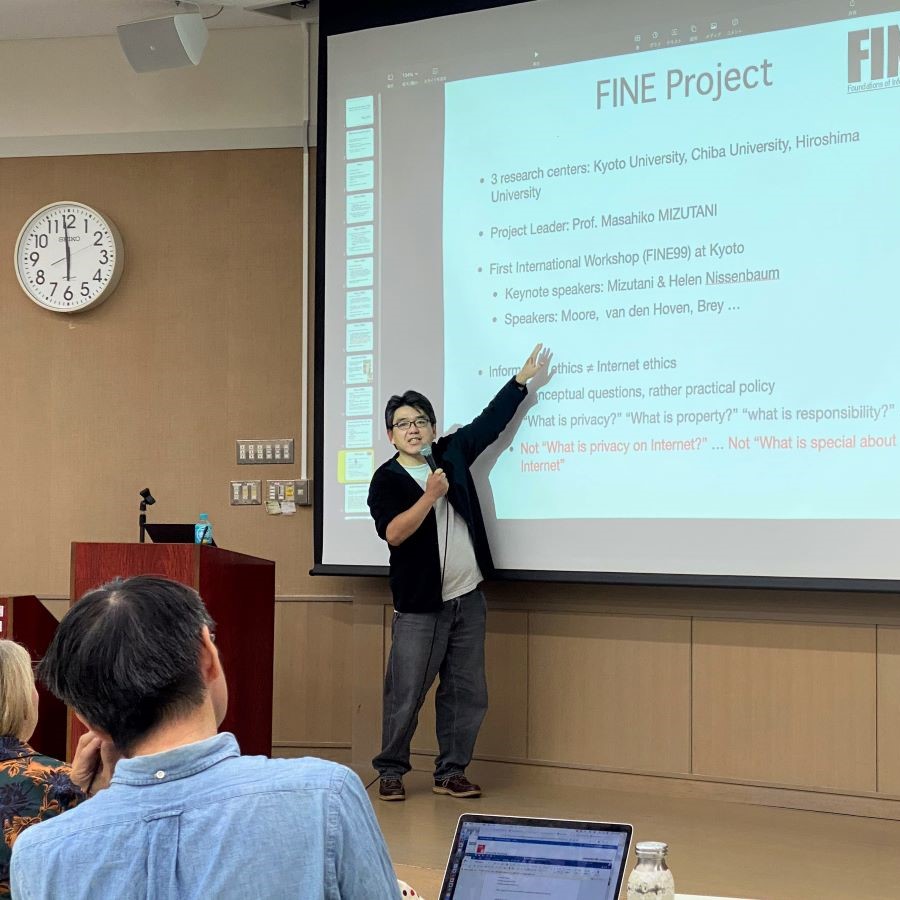International Symposium on “Ethics in Information Technology and Robotics“ in Kyoto
The rapid global advancement of robotics, information and communication technology as well as AI impacts societies at a global level. To enable responsible and ethical implementation of new technologies, international exchange and cooperation are crucial.

“Ethics in Information Technology and Robotics”

Opening address by Professor Yasuo Deguchi, Dean of the Graduate School of Letters and the Faculty of Letters at Kyoto University as well as Co-Chairperson of Kyoto Institute of Philosophy.
© CAPE
Opening address by Professor Yasuo Deguchi, Dean of the Graduate School of Letters and the Faculty of Letters at Kyoto University as well as Co-Chairperson of Kyoto Institute of Philosophy.
© CAPE
To address this need, the DFG together with the Center for Applied Philosophy and Ethics at Kyoto University and supported by the German Centre for Research and Innovation Tokyo (DWIH Tokyo) organised an international symposium on “Ethics in Information Technology and Robotics”, which took place on 21 October.

“Ethics in Information Technology and Robotics”

Speech by Johannes Schweizer, Head of Economic Affairs at the Consulate General of the Federal Republic of Germany Osaka-Kobe.
© CAPE
Speech by Johannes Schweizer, Head of Economic Affairs at the Consulate General of the Federal Republic of Germany Osaka-Kobe.
© CAPE
The event was organised as a satellite symposium to the German-Japanese-French conference on "Generative AI: Pathways to Democratization, Transparency and Sustainability(externer Link) in Tokyo on 12 and 13 November.
The opening address was held by Professor Deguchi Yasuo, Dean of the Graduate School of Letters and the Faculty of Letters at Kyoto University as well as Co-Chairperson of Kyoto Institute of Philosophy, whose work focuses on AI and philosophy. Professor Deguchi highlighted the common interest in the research questions pursued by Dr. Judith Simon, as well as presenting the activities and collaborations his institute maintains with Germany.

“Ethics in Information Technology and Robotics”

Keynote Lecture by Professor Dr. Judith Simon, University of Hamburg, on “Human-Machine-Relations: Challenges of Artificial Intelligence – The Opinion of the German Ethics Council on the Ethics of Artificial Intelligence”.
© CAPE
Keynote Lecture by Professor Dr. Judith Simon, University of Hamburg, on “Human-Machine-Relations: Challenges of Artificial Intelligence – The Opinion of the German Ethics Council on the Ethics of Artificial Intelligence”.
© CAPE
In his subsequent speech, Johannes Schweizer, Head of Economic Affairs at the Consulate General of the Federal Republic of Germany Osaka-Kobe, elaborated on the many bilateral, trilateral and multilateral initiatives that individual researchers as well as institutions up to the state level engage in. The DFG itself funded trilateral AI projects with partner organisations in Japan and France between 2020 and 2023, thereby providing opportunities for an exchange on ethical implications.
Schweizer also emphasised the importance of international discussions on opportunities, challenges and risks of new technologies, referring to the Hiroshima AI Process that was launched in May 2023 during the G7 Hiroshima Summit.
Dr. Judith Simon, Professor of Ethics in Information Technology at the University of Hamburg, held a keynote speech in which she presented key concepts from the report “Humans and Machines – Challenges of Artificial Intelligence” published by the German Ethics Council, which focuses on the effects of AI in medicine, education, public communication and the shaping of public opinion as well as public administration.

“Ethics in Information Technology and Robotics”

Keynote Lecture by Professor Nobutsugu Kanzaki, Nanzan University, on “Four Decades Since Moore (1985): What Was Computer Ethics and What Is AI Ethics”.
© CAPE
Keynote Lecture by Professor Nobutsugu Kanzaki, Nanzan University, on “Four Decades Since Moore (1985): What Was Computer Ethics and What Is AI Ethics”.
© CAPE
Dr. Nobutsugu Kanzaki, Professor at the Faculty of Global Liberal Studies, Department of Global Liberal Studies at Nanzan University, is a member of the Ethics Committee of Japanese Society of Artificial Intelligence (JSAI). In his speech, he drew conclusions from four decades of research on computer ethics and linked these to the current discourse on AI ethics.
Both talks laid the foundation for an in-depth discussion with the symposium participants moderated by Professor Tetsuji Iseda of Kyoto University. It became evident that Japan and Germany face many similar challenges, such as data protection issues, biases in technology or inclusion issues. However, the symposium participants agreed that these challenges offer a chance to combine perspectives and approach these issues in a joint effort.